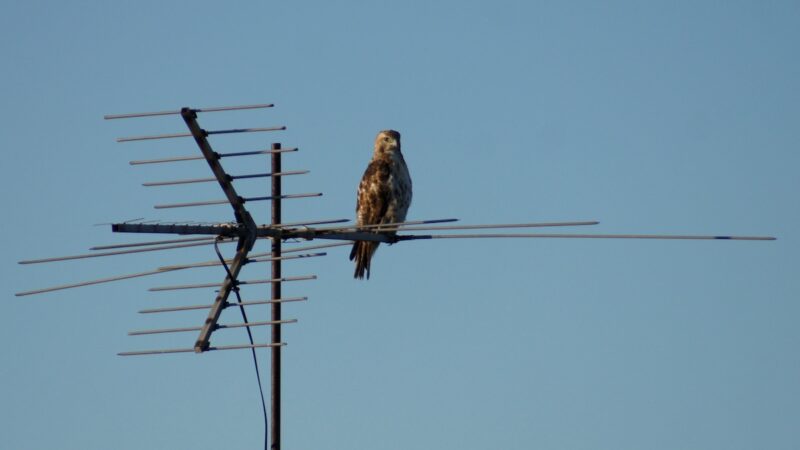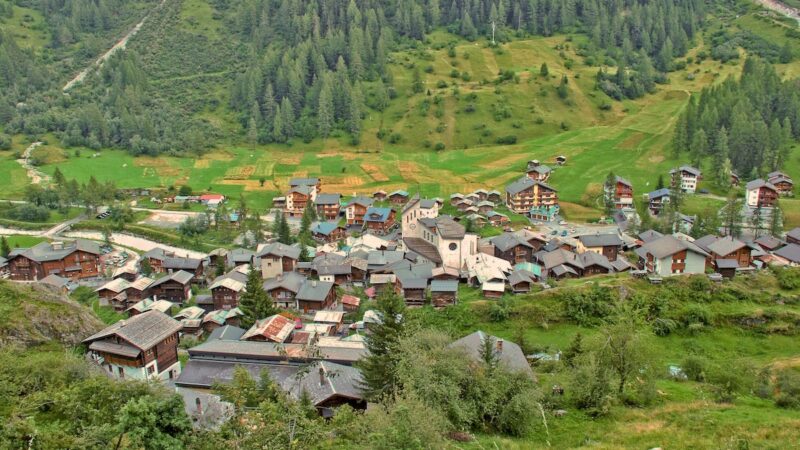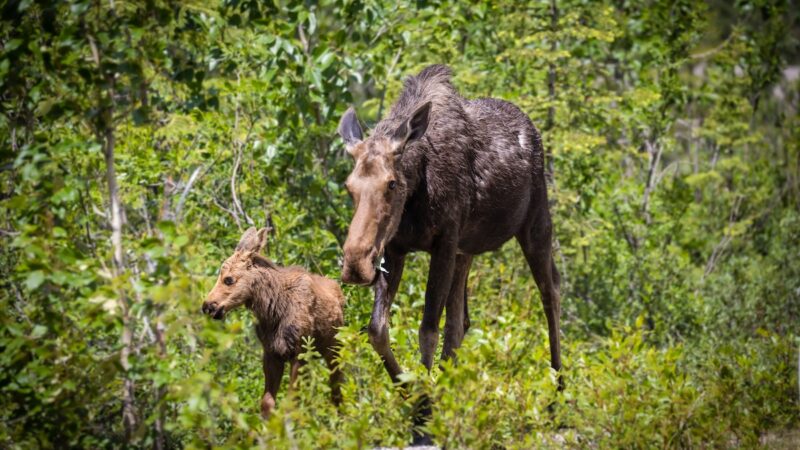5 Things You Didn’t Know About Joshua Tree National Park
Despite being less than a three-hour drive from the busy Los Angeles Metro Area, Joshua Tree National Park is packed with miles of untouched arid wilderness and full of desert plants and wildlife.
Joshua Tree’s desert climate drew more than three million visitors in 2022 and 2021. Compared to many other parks, Joshua Tree is packed with cultural significance, whether movie references or album titles by big-name bands. Others consider visiting Joshua Tree a spiritual experience. However, whether that’s your draw to the park, or you’re there for rock climbing or to check out landmarks like Skull Rock, visiting Joshua Tree National Park is an amazing experience.
Here’s a look at some fun facts that keep visitors coming back.
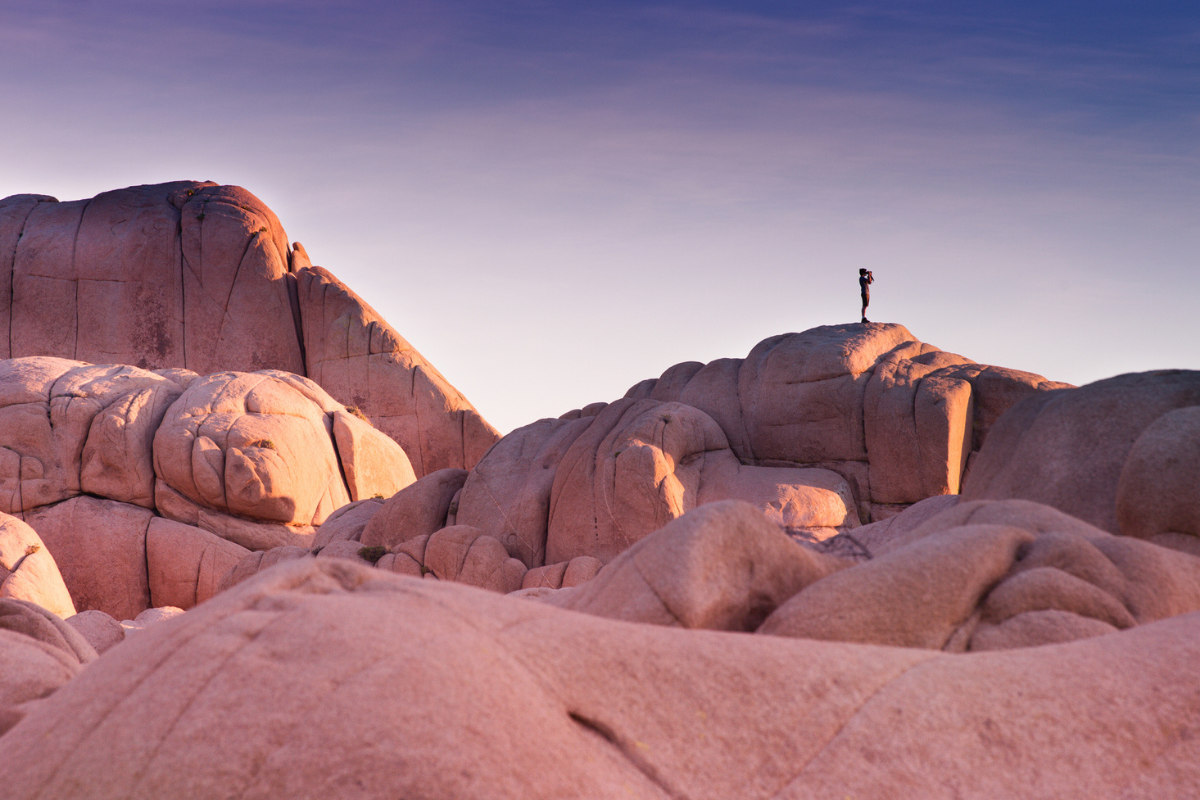
Two Deserts Meet In the Park
There are two deserts within the boundaries of the park. While the Mojave Desert is where most visitors enter, and where Joshua trees thrive, the Colorado Desert also makes up part of the park. The Colorado sits at a lower elevation and has a warmer climate than the Mojave. The Colorado also gets more rainfall in the summer, while the Mojave is likelier to see freezing temperatures in the winter. The two deserts make the park more diverse in its fauna and flora.
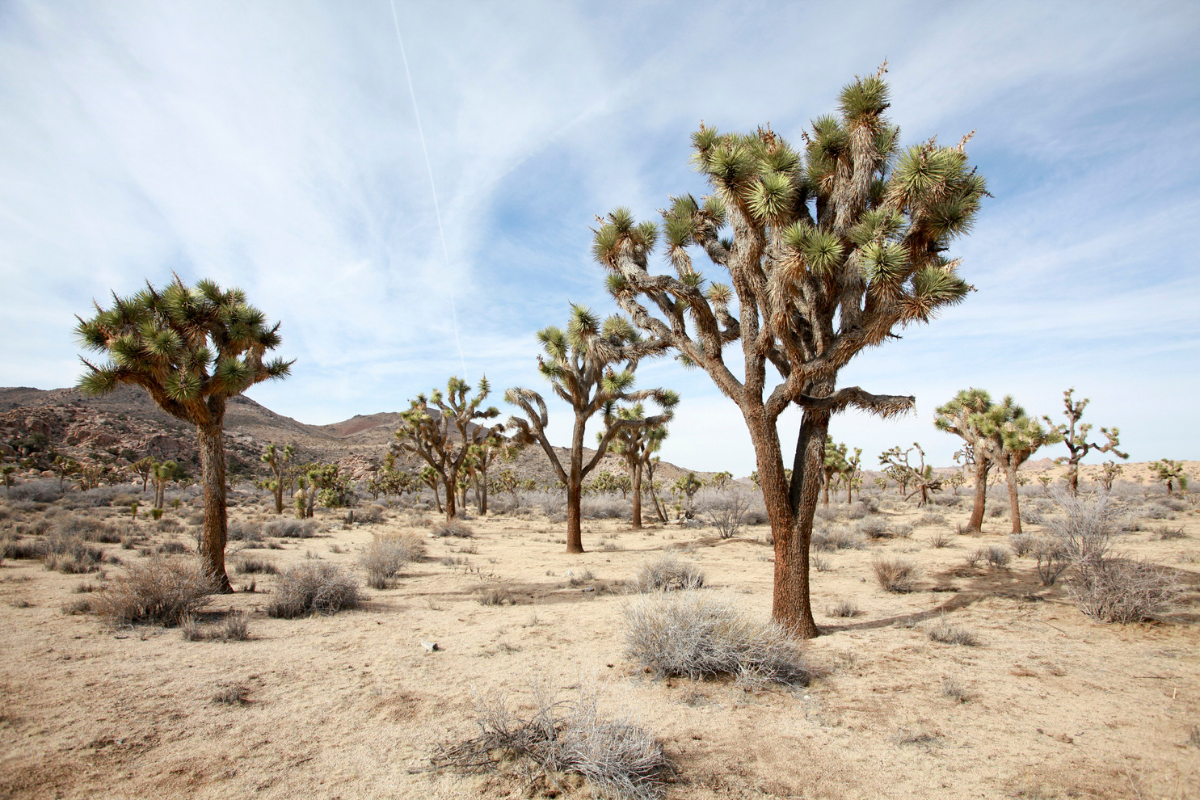
The Namesake Joshua Tree Plant Isn’t Actually a Tree
Despite looking like small alien trees, Joshua trees are a yucca plant. The agave plant has sharp spines like many other desert plants. The tree has been used for centuries as a source of material to weave baskets with its tough leaves. Later, Mormon settlers used the dense plant for fence posts. Those same settlers also named the plant Joshua tree after the biblical figure for the way its branches reach out as if it were praying. Today, dozens of species of animals and insects rely on plants for shelter and food.
Despite Being a Desert, Joshua Tree National Park is Full of Life
While most associate the desert as an unforgiving place with little life, hundreds of different reptiles, mammals and birds call Joshua Tree National Park home. The list of species includes coyotes, desert hares, bobcats and the desert tortoise, which has become sort of another mascot for the park. Officially named the Mojave desert tortoise, the animal is, unfortunately, a threatened species. The park is making significant efforts to save the species. Seeing one in the park is rare as they live 95% of their lives underground.
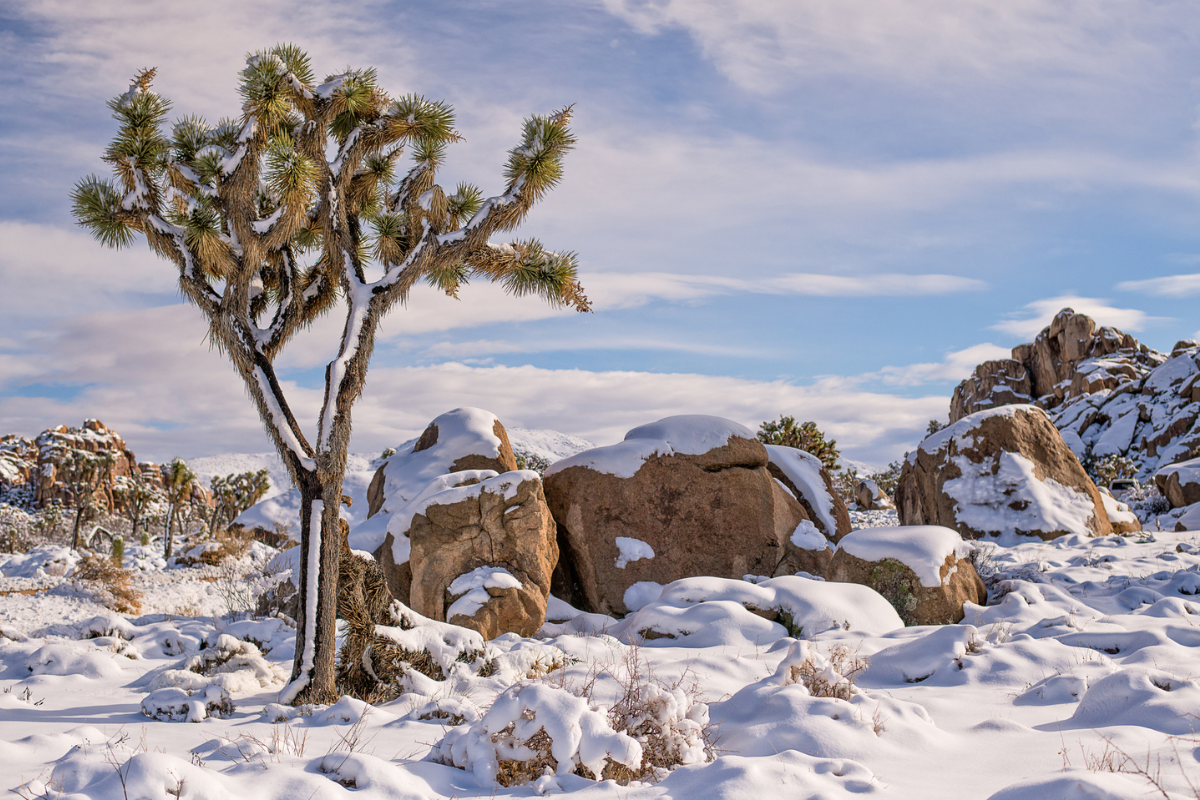
It’s Not Always Hot, and Snow Can Fall in the Winter
On average, Joshua Tree sees 0.7 days of snowfall in the park. That means it doesn’t happen yearly, but it occurs enough that it isn’t necessarily a rare occurrence in a place associated with high temperatures. While it’s usually not much more than a light dusting, the snow provides another water source for a usually dry place. California saw a record-breaking amount of snow in 2023, including some snow that fell within the park.
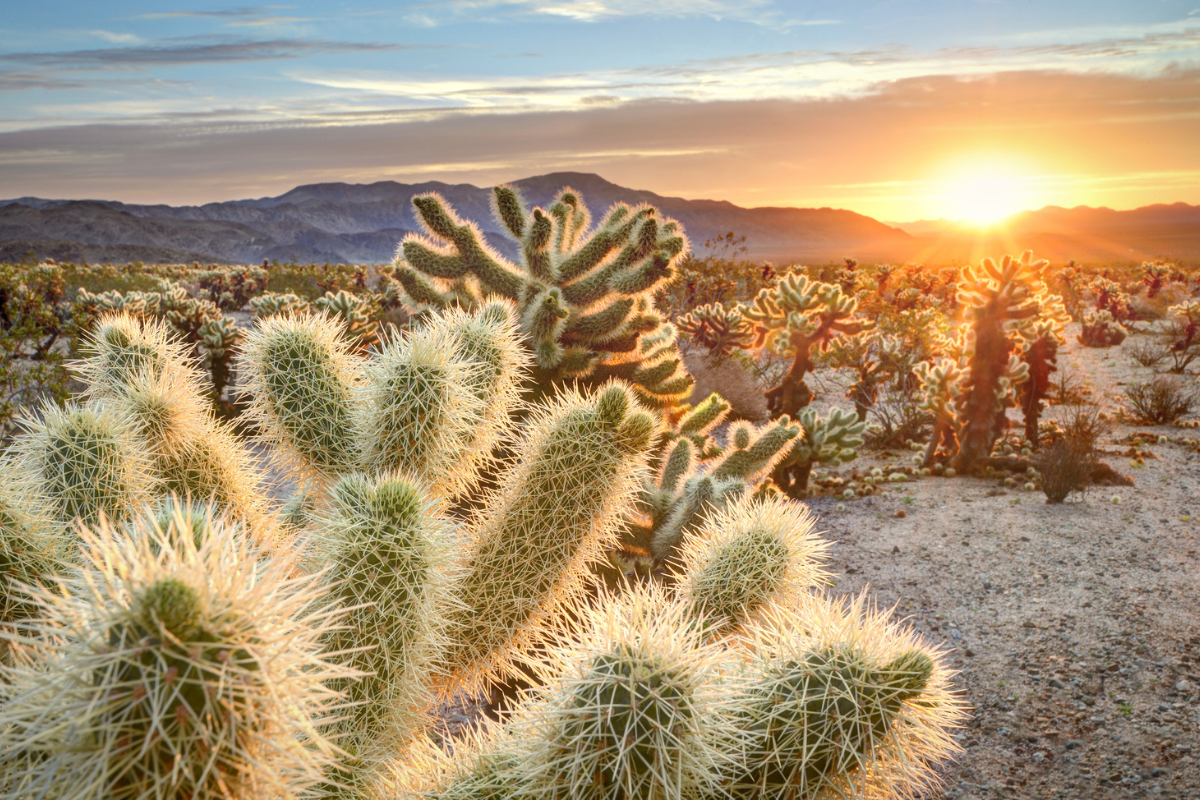
Most of Joshua Tree National Park is Wilderness
Even though millions of people live within a day’s drive to the park, most of Joshua Tree is considered wilderness. That means the protected areas are even without roads, facilities or any sign of human influence. Visitors wishing to access these parts of the park must do so on foot, if at all. In fact, 85% of the park is wilderness areas. According to NPS officials, wilderness areas, “provide visitors with greater solitude and quiet, with opportunities to explore where few others have ventured.”
Source: https://outdoors.com/5-things-you-didnt-know-about-joshua-tree-national-park/


